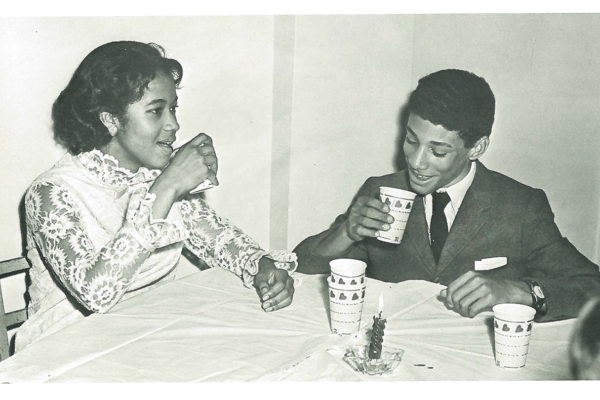How color barrier fell at South’s elite private schools
While many historians have explored the bitter court-ordered desegregation of public schools following the Supreme Court’s Brown v. Board of Education decision, the equally dramatic story of the voluntary desegregation of prestigious, traditionally white, private schools remains largely untold. A new book, “Transforming The Elite,” sets out to fill that void by telling the firsthand stories of the young black students who broke the color barrier at the South’s most prestigious private schools in the fall of 1967.
Brown v. Board of Education, 50 years later
Photo courtesy Library of Congress.From left, attorneys George E.C. Hayes, Thurgood Marshall and James M. Nabrit Jr. congratulate each other following the U.S. Supreme Court decision declaring segregation in public schools unconstitutional.When the U.S. Supreme Court handed down the Brown v. Board of Education ruling 50 years ago, it based its opinion on the premise that the lives of African-Americans were irreparably harmed by the stigma of segregation, leaving their lives bereft of hope and opportunity. Not all African-Americans accepted this idea, however, leading to skepticism about the Brown decision, says Tomiko Brown-Nagin, J.D., Ph.D., an associate professor in Washington University’s School of Law and in the Department of History in Arts & Sciences. “Although black ambivalence about Brown may appear to be a phenomenon of recent vintage — one connected to the ‘black pride’ movement of the late ’60s and ’70s or the multicultural movement of the early ’90s — in fact it has deep historical roots,” she says. “The historical record should be revised to correct received wisdom: the notion that African-Americans across time and place uniformly supported the campaign to integrate the schools is an historical misconception.”
Inequalities in schools and neighborhoods focus of daylong conference Feb. 27
Social inequalities in schools and neighborhoods will be addressed by leading national scholars as well as prominent local scholars, experts and activists during a daylong conference Feb. 27 at Washington University. WUSTL’s Program in Social Thought & Analysis (STA) in Arts & Sciences is sponsoring the conference, titled “Inequalities in Schools & Neighborhoods: St. Louis and Beyond.”

